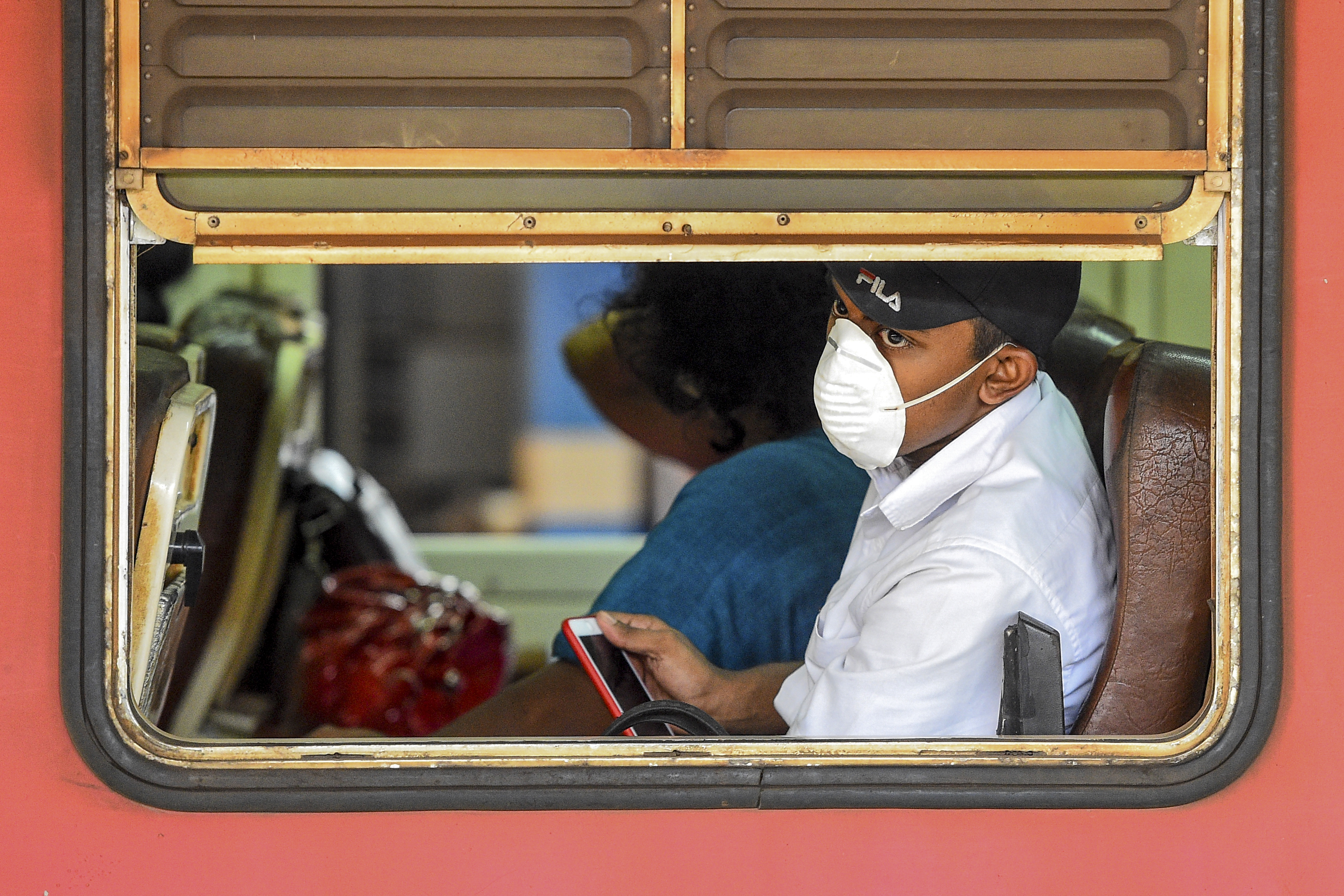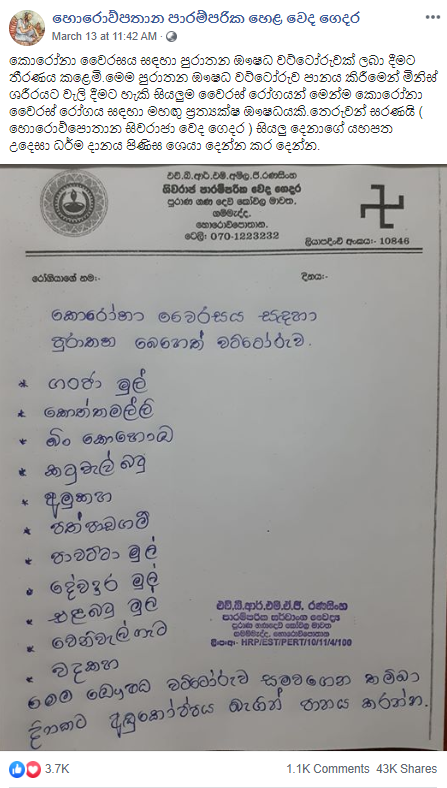
Health experts refute claim that ancient medicinal herbs are an effective coronavirus remedy
- This article is more than five years old.
- Published on March 17, 2020 at 09:45
- 2 min read
- By AFP Sri Lanka
The photo was posted on Facebook here on March 13, 2020. The post has since been shared more than 45,000 times.
Below is a screenshot of the misleading Facebook post:

The writing on the purported prescription is Sinhala language. It translates to English as: “Ancient medicine recipe for coronavirus” and lists 11 varieties of medicinal herbs, which it states should be boiled together and consumed daily.
The post’s Sinhala caption reads, in part: “Decided to issue an ancient medicine recipe for coronavirus. By drinking this ancient medicine recipe, this is a great medicine for all viral infections that can afflict the human body as well as coronavirus…”
The COVID-19 epidemic that has killed more than 6,606 people and infected some 167,511 others, according to this latest WHO report published on March 16.
The photo of the prescription was also shared with a similar claim on Facebook here and here.
The claim is misleading.
Health experts said the Ayurvedic herbal remedy is not effective for treating COVID-19.
“Ayurveda began in 800-1000 BC and the coronavirus was not discovered at the time,” Dr. L. P. A. Karunathilake, a senior lecturer at the Colombo University Institute of Indegenous Medicine, told AFP by phone on March 16, 2020. “Moreover, the novel coronavirus was found in 2019, so it is impossible to treat COVID-19 using an ancient Ayurveda medicine recipe.”
Karunathilake also noted that while the 11 medicinal herbs mentioned in the prescription can be used to reduce fever symptoms, he cautioned against drinking the concoction as a coronavirus remedy.
The brew “may subside the fever but if the individual has contracted COVID-19, he/she could end up contaminating the environment around them and transmitting the disease to many others,” he said.
Karunathilake also warned that “if one consumes the concoction without fever for a prolonged period, it can cause long term health complications, including kidney and liver issues.”
Sri Lanka’s Health Promotion Bureau (HPB) urged the public not to attempt to treat the coronavirus with home remedies.
“These types of home remedies can create a false sense of security and distract the public from using basic preventive measures that can actually minimize COVID-19 transmission risk and defeat community infection control efforts,” Dr. Ashan Pathirana, the HPB Registrar, told AFP by phone on March 15, 2020.
HPB’s official coronavirus guidelines can be viewed here.
The World Health Organization (WHO) also maintains that there is currently no effective remedy for the coronavirus.
“While some western, traditional or home remedies may provide comfort and alleviate symptoms of COVID-19, there is no evidence that current medicine can prevent or cure the disease,” the agency states here. “WHO does not recommend self-medication with any medicines, including antibiotics, as a prevention or cure for COVID-19.”
Copyright © AFP 2017-2026. Any commercial use of this content requires a subscription. Click here to find out more.
Is there content that you would like AFP to fact-check? Get in touch.
Contact us
